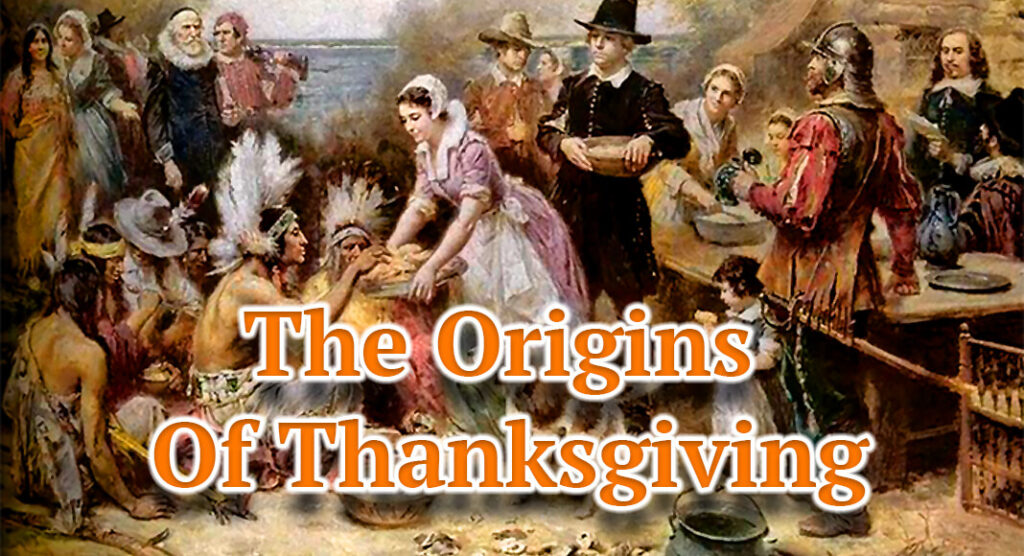
Texas Border Business
Texas Border Business
Thanksgiving, a cherished holiday in the United States, traces its origins to a group of determined individuals and a significant moment of cooperation and survival. While today it is celebrated with family gatherings, feasts, and gratitude, the history behind Thanksgiving highlights resilience, collaboration, and cultural exchange.
The Pilgrims: Founders of the Tradition
The story begins with the Pilgrims, a group of English Separatists who left Holland to escape religious persecution and the worldly influences of Dutch culture, which they feared might corrupt their children. Seeking a place to establish a purer Christian community, the Pilgrims set sail aboard the Mayflower for the New World in 1620. Their intended destination was the northern part of the Virginia Colony, but unfavorable weather conditions led them to land in Plymouth, Massachusetts, in December of that year. This fortuitous landing marked the founding of Plymouth Colony, one of the earliest English settlements in North America.
The First Thanksgiving: A Celebration of Survival and Cooperation
The Pilgrims faced unimaginable hardships during their first winter in Plymouth, with nearly half the settlers perishing due to harsh conditions and disease. However, their fortunes began to change in 1621, largely thanks to the assistance of the Wampanoag people and their liaison, Squanto. Squanto, a Patuxet Native American, taught the Pilgrims essential survival skills, including cultivating corn and fish and identifying native plants. Squanto’s knowledge and diplomacy fostered peaceful relations between the Pilgrims and the Wampanoag.
In the fall of 1621, the surviving 53 Pilgrims joined 90 Wampanoag warriors in a three-day harvest festival. Often regarded as the First Thanksgiving, this event was likely inspired by the Biblical holiday of Sukkot, a harvest celebration. Together, the Pilgrims and Wampanoag shared a meal that included vegetables, fish, wild turkeys, and five deer contributed by the Wampanoag as gifts.
Squanto: A Vital Figure in Thanksgiving’s History
Squanto’s journey to becoming an indispensable ally to the Pilgrims was extraordinary and tragic. Captured as a young man by a sea captain, Squanto was sold into slavery in Spain. After gaining his freedom, he went to England and eventually returned to his homeland, only to find his tribe decimated by disease. Despite his losses, Squanto’s efforts to help the Pilgrims survive and build relationships with the Wampanoag were seen by the Pilgrims as a divine intervention, with Plymouth Colony leaders referring to him as “a special instrument sent of God.”
Thanksgiving Becomes a National Holiday
Thanksgiving did not become an official national holiday until 1863, during one of the most challenging periods in American history. Amid the Civil War, President Abraham Lincoln proclaimed Thanksgiving a national holiday, designating the last Thursday of November as a day of gratitude and unity. This proclamation aimed to bring a sense of hope and togetherness to a nation divided.
Symbolism of Thanksgiving: The Cornucopia
The cornucopia, or “Horn of Plenty,” is a timeless symbol of Thanksgiving. It represents abundance and gratitude. Often seen as a decorative centerpiece overflowing with fruits, vegetables, and other harvest items, the cornucopia captures the spirit of the holiday—a celebration of life’s blessings and the bounty of the harvest season.
A Lasting Legacy
The story of Thanksgiving is about resilience, community, and gratitude. From the Pilgrims’ quest for religious freedom to the generosity of the Wampanoag people, the holiday’s origins remind us of the importance of cooperation and thankfulness. As families across the nation gather each year on the fourth Thursday of November, they honor a tradition deeply rooted in the values of unity and gratitude that shaped America’s early history.















